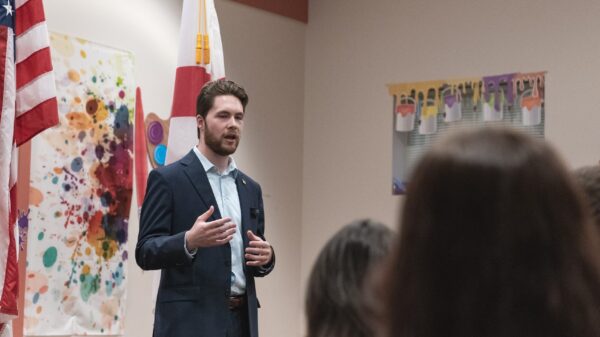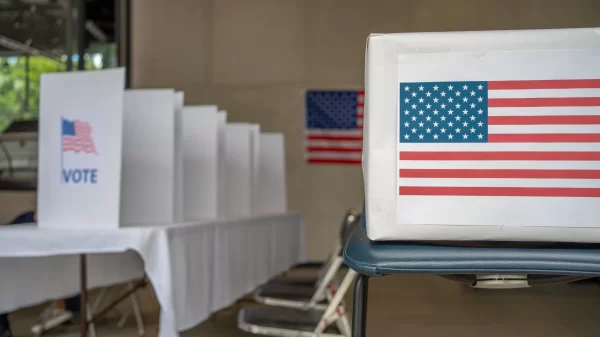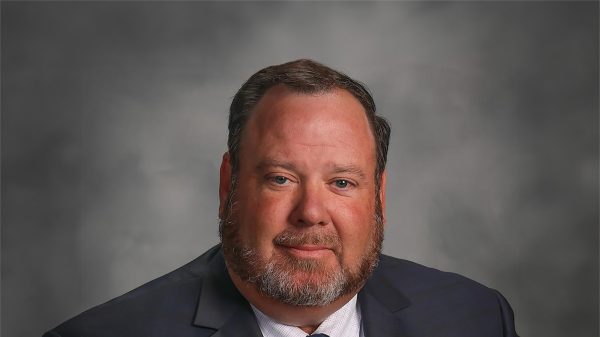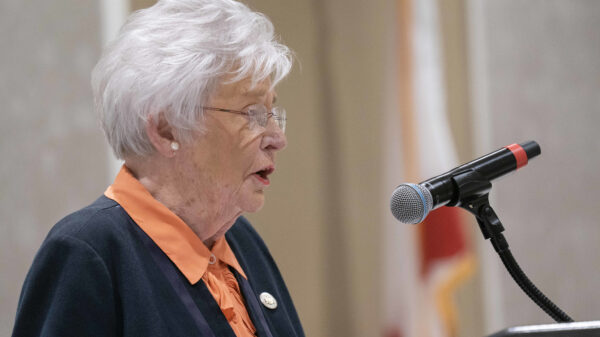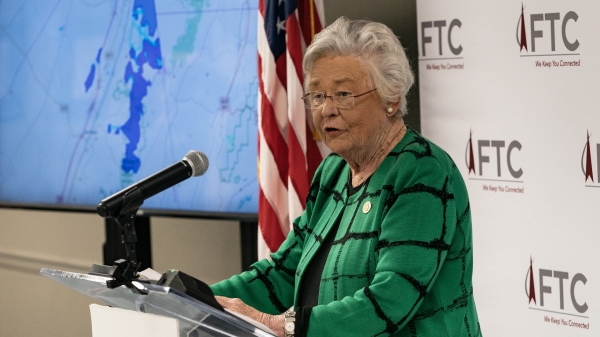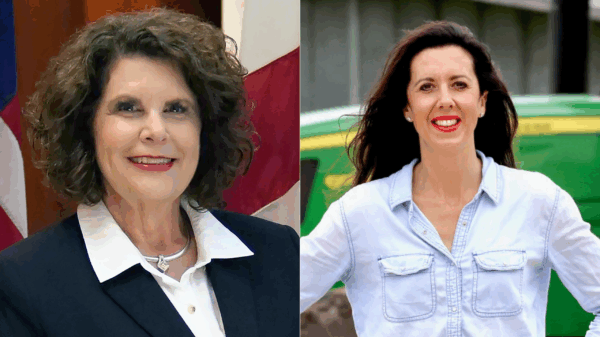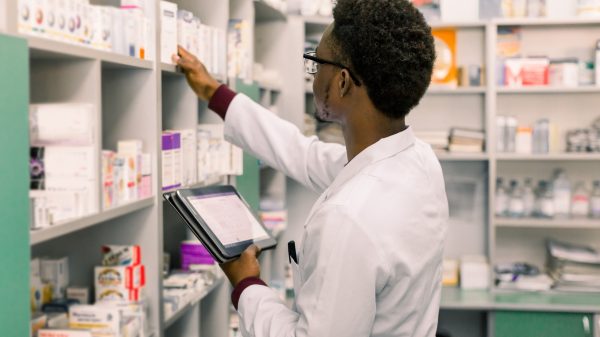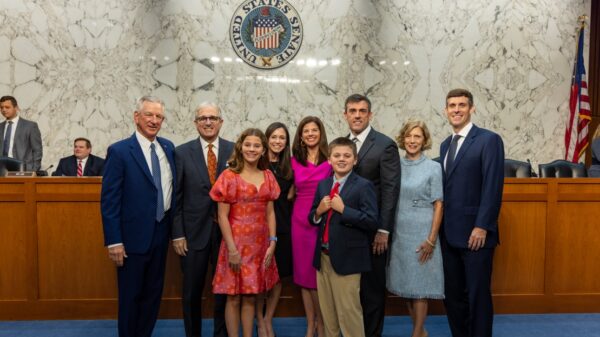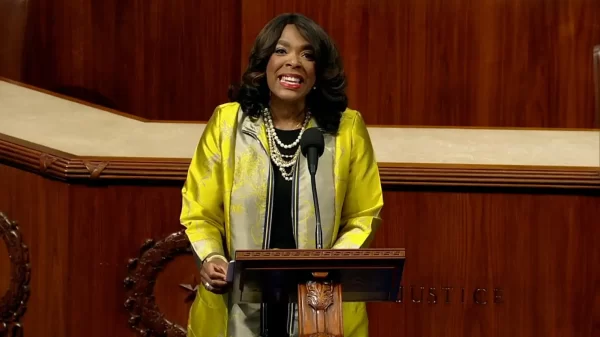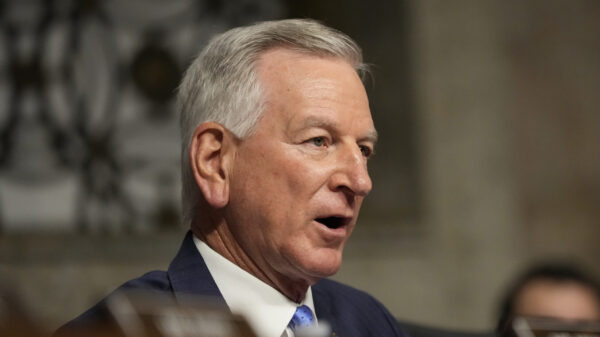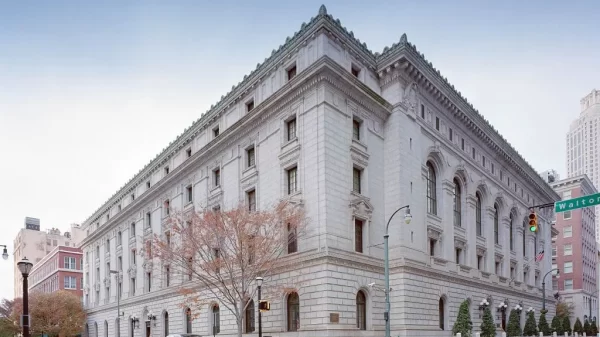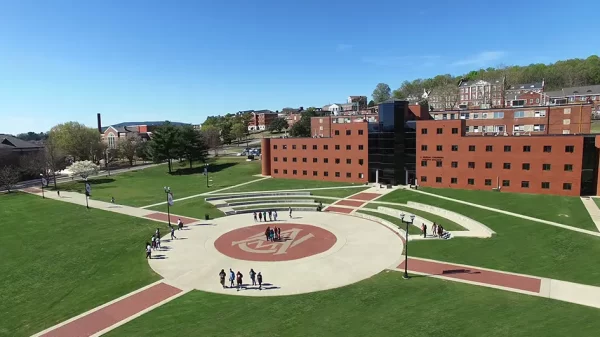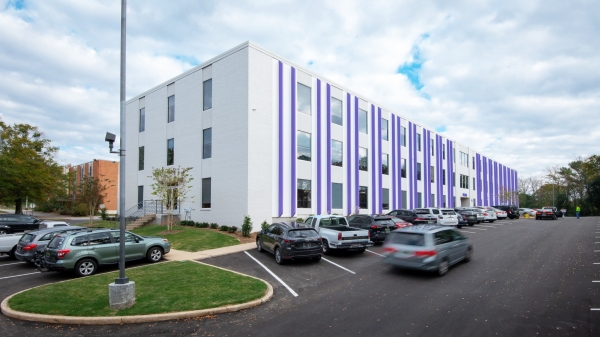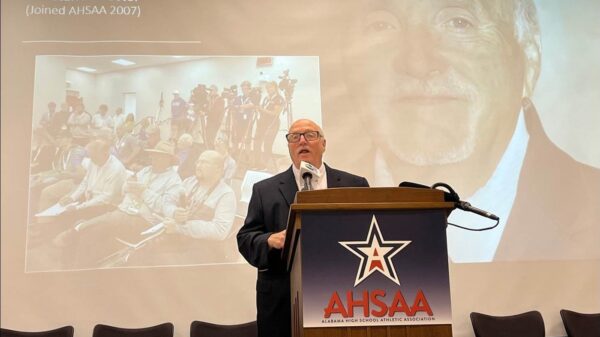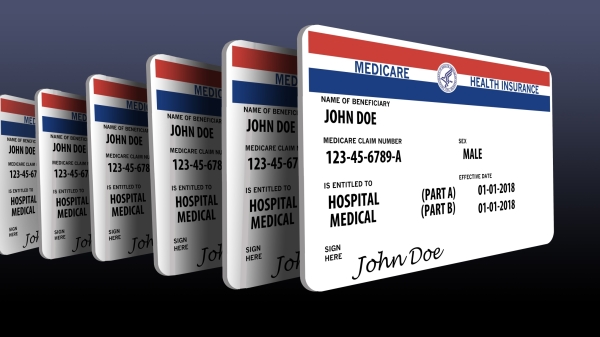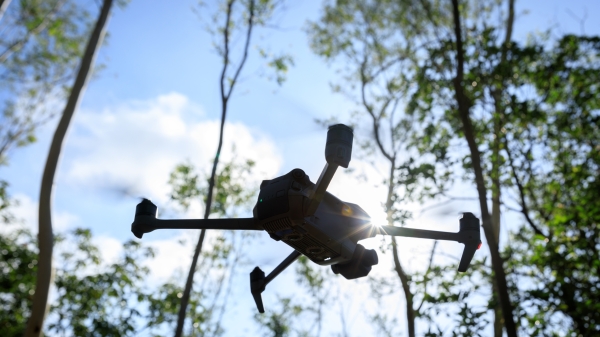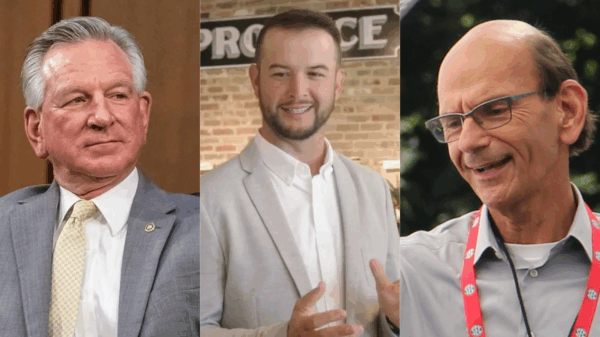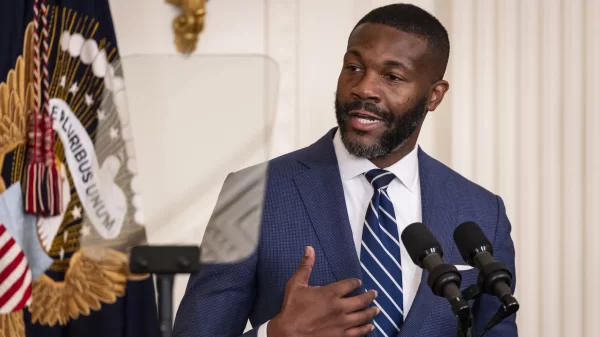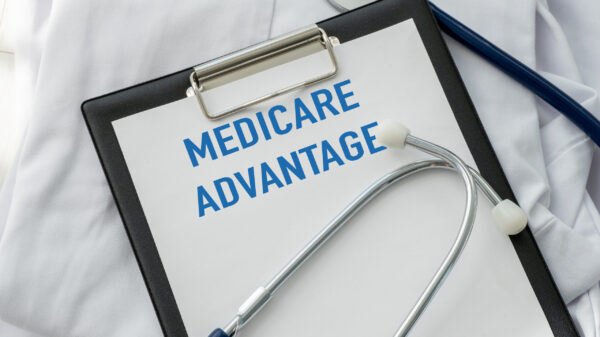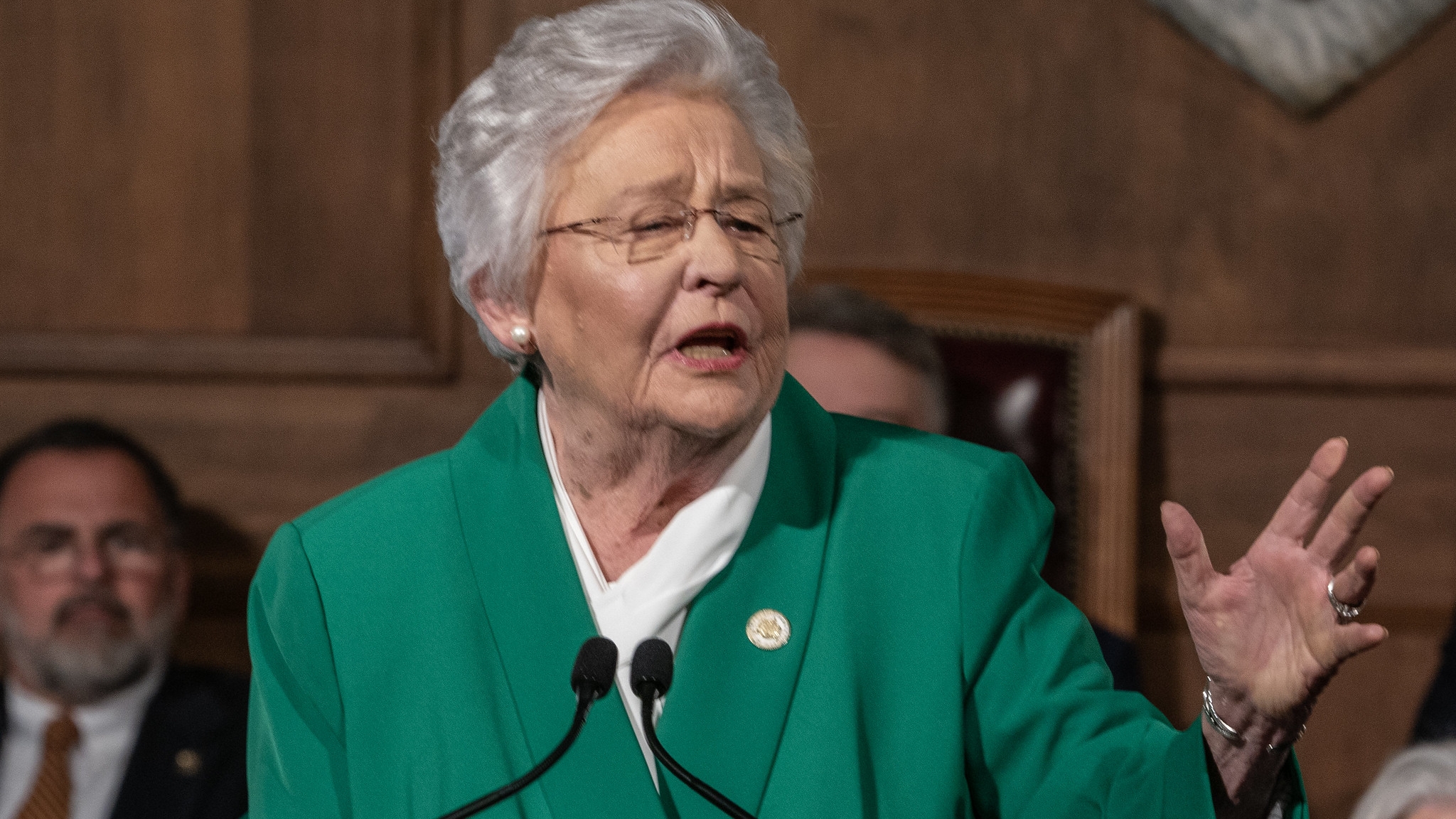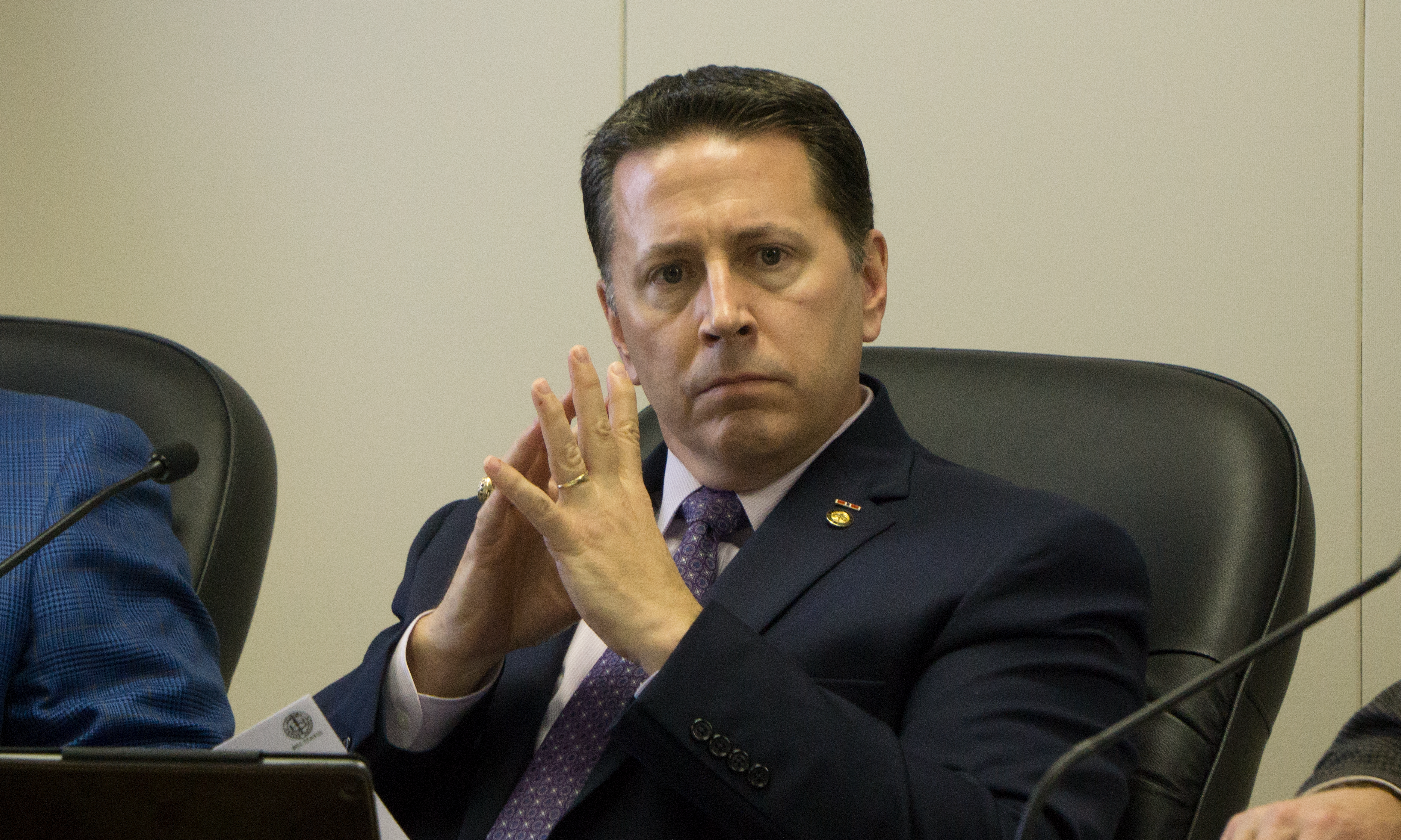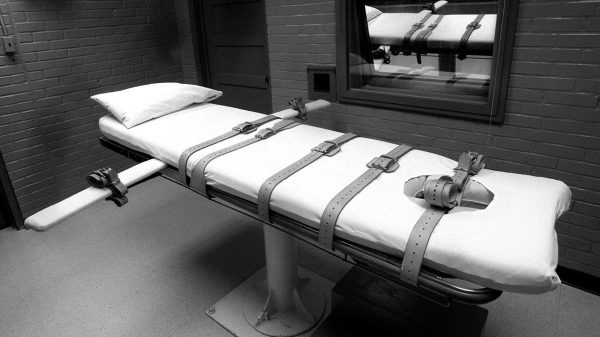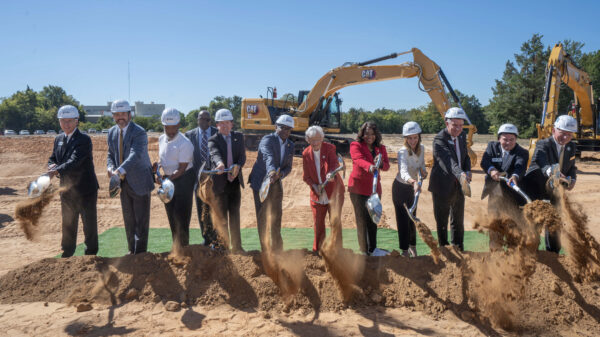Leadership in the Alabama Legislature has suggested for months that they would be looking into tax rebates for Alabamians in the 2023 session with a massive surplus in the state coffers.
Gov. Kay Ivey put a number to that plan Tuesday night– $400 per individual, which Ivey estimated will cost the state nearly $1 billion to accomplish.
[visual-link-preview encoded=”eyJ0eXBlIjoiaW50ZXJuYWwiLCJwb3N0IjoxNTk5MjEsInBvc3RfbGFiZWwiOiJQb3N0IDE1OTkyMSAtIEZ1bGwgdGV4dDogR292LiBLYXkgSXZleeKAmXMgMjAyMyBTdGF0ZSBvZiB0aGUgU3RhdGUgYWRkcmVzcyIsInVybCI6IiIsImltYWdlX2lkIjoxNTk5MzUsImltYWdlX3VybCI6Imh0dHBzOi8vd3d3LmFscmVwb3J0ZXIuY29tL3dwLWNvbnRlbnQvdXBsb2Fkcy8yMDIzLzAzLzMzNDY3NzIwOF8xNTU1MzkwMzU0OTM4MzY0XzgyMTUwMDU4NjM0NTMzMTk5NTJfbi1lMTY3ODI0NjI4MjM1My0xMDI0eDU3Ni5qcGciLCJ0aXRsZSI6IkZ1bGwgdGV4dDogR292LiBLYXkgSXZleeKAmXMgMjAyMyBTdGF0ZSBvZiB0aGUgU3RhdGUgYWRkcmVzcyIsInN1bW1hcnkiOiJcIldlIGhhdmUgYW4gb3Bwb3J0dW5pdHkgZHVyaW5nIHRoaXMgTGVnaXNsYXRpdmUgU2Vzc2lvbiB0byBjb250aW51ZSBtYWtpbmcgcHJvZ3Jlc3MgZm9yIEFsYWJhbWEgZmFtaWxpZXMuXCIiLCJ0ZW1wbGF0ZSI6InVzZV9kZWZhdWx0X2Zyb21fc2V0dGluZ3MifQ==”]
“That means $800 for our working families, and it couldn’t come at a better time,” Ivey said. “Folks, this is the people’s money, and it’s only right, while still acknowledging we are recording revenues far exceeding normal and sustainable levels, we give a fair share of this money directly back to the people of Alabama.”
House Minority Leader Anthony Daniels, D-Huntsville, told reporters after the address that the rebates aren’t a sustainable relief for Alabamians and said the Legislature should instead focus on eliminating Alabama’s tax on groceries and overtime, both part of the Alabama House Democrats agenda announced Monday.
In addition to the rebates, Ivey also called the Legislature into special session to determine how to allocate another $1 billion under the American Rescue Plan Act.
“This is not ‘free money,’ and we must invest these one-time funds wisely,” Ivey said. “Last year, thanks to you, members of the Alabama Legislature, we put these dollars to work, meeting some of Alabama’s biggest challenges. I commit to the people of Alabama we will once
again take a smart approach and put it towards major and needed endeavors like expanding broadband access, improving our water and sewer infrastructure and investing in our health care– including telemedicine.”
Education
Ivey also put a strong focus on education in her speech, proposing a 2 percent raise for teachers and once again aiming to have Alabama in the top 30 schools in educational outcomes.
“My goal is to have the starting salary for all Alabama teachers to be the highest in the Southeast by the end of my term,” Ivey said.
School choice, something many Alabama lawmakers have been discussing in the run-up to the session, only had a brief mention from Ivey, who did not lend any credence in her speech to attaching educational dollars to the student rather than the school.
Instead, Ivey said the state needs to improve the school choice it already has, including more accountability for charter schools and providing startup funds to charter schools. Ivey did not go into further details of what those initiatives would look like.
Ivey also proposed establishing the Alabama School of Healthcare Sciences to address the growing healthcare worker shortage we are predicted to experience in the coming years.
“This new healthcare high school, to be located in Demopolis, will offer an innovative curriculum for 9th through 12th graders, exposing them to a diversity of STEM and healthcare opportunities, as well as hands-on clinical training experiences,” Ivey said.
Daniels said he is excited about the new school, but it falls short of creating pathways for all students in the state.
“If it’s good for the four counties in this state, even though students are contesting for it statewide, it should be good for every county in Alabama,” Daniels said. “We’ve got to create opportunities and pathways so that every child, no matter what zip code they’re in, have the opportunity to access to their areas of interest.”
Small business
“Our stability begins and ends with our small businesses – the backbone of our state’s economy,” Ivey said.
To that end, Ivey signaled she would be signing an executive order Wednesday to “cut red tape so that our businesses
are not held back, but can thrive.”
Ivey also called for investing $200 million into the Main Street grant program to revitalize small cities and towns.
The Alabama Legislature is set to renew the Alabama Jobs Act and the Growing Alabama Act in this session, and Ivey said doing so will be an important part in keeping momentum strong.
“Since I’ve been governor more than $42 billion have been invested in our state, which has created some 78,000 new jobs,” Ivey said. “For most of those, we can thank the Alabama Jobs Act. And any good coach knows when you have a play that’s working, the team needs to keep running it.”
Ivey also said the state should increase transparency in the state’s incentive program to build trust.
Ivey did not spend much time speaking on public safety, except to reiterate the state’s commitment to jailing fentanyl dealers, which Ivey said is crucial to protect Alabamians from the increasingly prevalent and deadly drug.
Democrat leaders also said the speech fell short in addressing the state’s healthcare needs and urged the Legislature to consider expanding Medicaid, which has been a battleground for years as Alabama is one of the last states holding out from taking the federal money.


